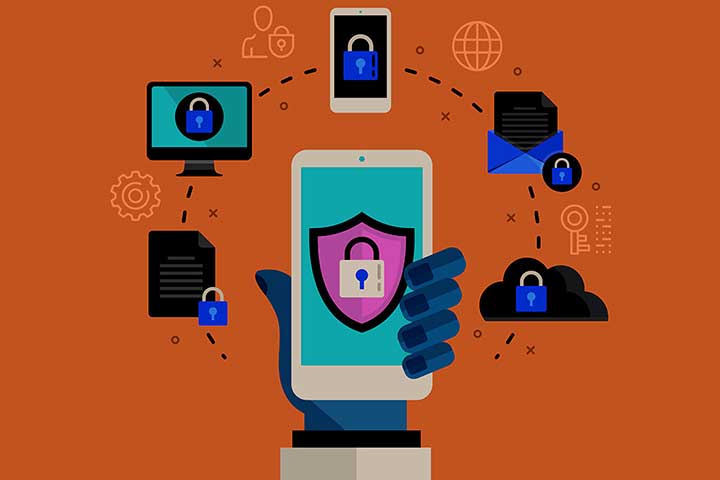Have you ever stopped to think about the security of your phone? Are you aware of the risks that lie in wait? Neglecting an aspect like this can jeopardize a significant amount of data
.
The revolution of mobile technologies is an unprecedented event, and since its appearance, its development has not stopped growing. However, as in everything related to technology and computing, as well as its positive development, security threats associated with mobile devices have also grown on the dark side, since the first malicious code appeared in 2004 to these terminals, the trend has not stopped increasing.
The increase in possibilities and capabilities associated with mobile devices today also implies greater risks for their security. Users must be aware of the importance of safety in mobile devices and the dangers that their misuse can lead to.
It is advisable to follow the following tips:
- Establish a secure method to unlock the terminal, for example, using a strong password. (Use facial and biometric recognition).
- Eliminate message previews and take extra measures when the phone is not at hand
- Disable wireless connections (WiFi, Bluetooth, etc.) and all those unnecessary while they are not going to be used.
- Keep device software up-to-date and use approved security settings Be careful about access and permission requests from applications running on your phone.
- Ignore and delete messages (SMS, MMS, or others) of unknown origin that invite you to download content or access websites.
- Activate PIN access to Bluetooth connections and set the device in stealth mode. Do not accept connections from unknown devices.
- Download applications only from official stores. In no case download software from unreliable sites
- Avoid jailbreaking * or rooting * the terminal, as it can compromise and considerably reduce the security of the phone despite being tempting to access specific applications or services.
- Use a virtual private network to protect data traffic. It is always good practice to avoid possible monitoring by intruders.
- Avoid as much as possible the use of printers, faxes, or public WiFi networks, such as those offered in hotels or airports, unless you have the necessary tools to secure your communications.
- Digital cameras add GPS coordinates to the information of the images taken, so it is appropriate to limit the sharing of images on the network or use applications that eliminate such information.
- Separating personal and professional communications is good security practice. To handle sensitive information, use only technically approved solutions.
Backup copy
Bear in mind that l os attacks ransomware is the order of the day and remain one of the most significant threats in 2020, where it affects 50% of companies. There is a very high probability that we can touch! Despite all the protections and precautions that have been taken, they can get in and block your information. If you end up paying blackmail, you become a weak target and will surely be attacked again in the future.
With a correct policy of periodic backup copies, we will not only avoid losing information in the event of a theft or loss of a mobile device (phone, laptop …) but also avoid the theft of information in those cyberattacks in which we they will block or encrypt access to data. By having my data copied periodically to a remote location, I will be able to recover that data easily and quickly, affecting my company, my work, and my clients as little as possible. Of course without paying unnecessary blackmail that will negatively affect our corporate image.
It is important to use secure devices and locations to store these backups. It must be guaranteed under any concept that the information can be retrieved at all times. Carrying out tests or simulations to guarantee the integrity of the copies has to be an essential task in our security policy.

